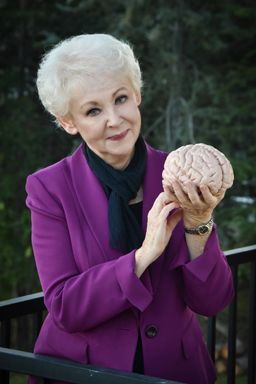Assessments
 A positive life and a negative mindset and self-talk are incompatible—you choose one or the other.
A positive life and a negative mindset and self-talk are incompatible—you choose one or the other.
—Arlene R. Taylor PhD
The word “assessing” suggests an evaluation or appraisal process, a way of identifying something. Most of the time when human beings want to assess something, it’s somewhat of a mental process. Sometimes there is an “assessment” available to help them do this in a more measured or wholistic way. Sometimes not. There is nothing magical about assessments and no flawless ones. Nevertheless, you can learn something from almost any assessment as long as you know what it was designed to evaluate or identify.
Douglas J. Eder, PhD has been quoted as saying: If you don’t know where you are headed, you’ll probably end up someplace else. To paraphrase: If you don’t know much about your brain function, you may end up trying to use it in very energy intensive ways—with the often negative outcomes that can generate.
I enjoy stringing quotations together because I find it helps me see a bigger picture or a larger process. For example, according to Mary Senter, the most important thing about assessment is that it promotes dialogue among faculty. To paraphrase that from a brain perspective: the most important thing about assessment is that it can promote dialogue between you and your brain and its various functions.
I believe your brain knows who you were designed to be—something the majority of people have often lost sight of somewhere between birth and adulthood. This may be because they were told who they were by people who didn’t understand much about their own brains and brain function, much less about that of their child(ren), especially when the child’s brain differed rather dramatically from the parental brains. Sometimes it may be due to the fact that society (including schools, churches, and industry) has created stereotypical descriptions and expectations of what a brain should or must be in order to fit into a specific environment.
As I said, there is nothing magical about assessments. And yet there can be in a sense. Evaluating an aspect of oneself with the help of a “guide” (however elementary and emerging) can often assist the person in expanding his or her appraisal or of looking at a particular brain aspect in a new way. To that end, this section contains several “assessments.” They are “work in progress.” Nevertheless, feel free to print them off and use them to help you look at your brain functions in a new way.
It is difficult to value and appreciate the brains of others and collaborate successfully with them if you know little about your own brain function and either over-value or under-value it. These assessments come with no expectations that your brain should function in a specific way. There is a hope, if not an expectation, that if you can figure out a way to identify aspects of innate giftedness, you are better able to use your brain by design—to be happy, healthy, successful, and hopefully live a long time.
[PDF files will open in a new window.]
Brain Bent
Identifying Your Brain Bent [PDF]
Extroversion-Ambiversion-Introversion Assessment
EAI Introduction [PDF]
EAI Assessment & Explanation [PDF]
Prolonged Adaptive Stress Syndrome
PASS Questionnaire [PDF]
Adapting - Plasticity of the Brain [PDF]
Relationship Evaluation Assessment
Relationship Evaluation Assessment [PDF]
Relationship Evaluation Assessment Explanation [PDF]
Sensory System Preference Assessment
Sensory Preference Assessment [PDF]
Español: Preferencia de Evaluación Sensorial [PDF]
Sensory Preference Assessment Explanation [PDF]
Work Task Energy Assessment
Work Task Energy Assessment [PDF]
Work Task Energy Assessment Explanation [PDF]
For additional information, refer to Practical Applications and Brain References.

